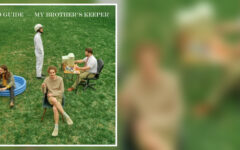
It’s evident even from an initial listen that Eliza Meyer is an old soul in teenage trappings. Born and raised in North Carolina, this high school junior is a musical prodigy who digs into her state’s deep well of tradition and interprets it with a knowing perspective that far exceeds her tender years. It’s a credit to her skills and ability that her debut album, Hello Stranger, features contributions from the likes of co-producer Cathy Fink, Alice Gerrard, Sam Gleaves and other artists of significant stature in contemporary old time music, but it’s even more impressive that young Miss Meyer is both so wise and reverent to begin with.
Indeed, the album finds her tapping into a series of venerable standards, mostly of vintage origin. The results ring with authenticity, similar in sound to old recordings by the original writers themselves. Hearing Meyer retrace such songs as the Carter Family classic Hello Stranger, (a moving duet with her teacher, Sam Gleaves), the weary Working Girl Blues, and a barebones version of the Dean Martin standard, Send Me the Pillow, becomes a revelation of sorts, given that Meyer captures the ache and longing that infused this material so early on.
In that sense, Meyer effectively inhabits each of these entries, and when she revisits the hallowed folk songs Darlin’ Corey and The Cuckoo, one gets the feeling of what it might have been like to hear the dogged troubadours of a century before relaying these melodies originally in their seminal state. Although Meyer’s singing tends to betray the innocence of her age, the arrangements are mined through minimal accompaniment — mostly limited to fiddle, fretwork, and her forlorn vocals — all of which is used sparingly to accentuate the purity. Likewise, Anne Janelle’s supple cello on a version of Iris Dement’s Our Town reinforces the song’s sweet sentiments, just as the high harmonies plied on Hazel Dickens’ Hills of Home and the Louvin Brothers’ lovelorn ballad, When I Stop Dreaming, underscore the emotion that infused these longing laments in their original incarnations.
Naturally, many of the critical kudos that Meyers garners going forward will reference her tender years and marvel at the fact she’s progressed so far so soon. That’s to be expected, but given the given the richness and resonance she infuses in this set of songs, it’s not enough to marvel at her maturity. There’s allowed opportunity to renew one’s appreciation for these timeless treasures as well.







